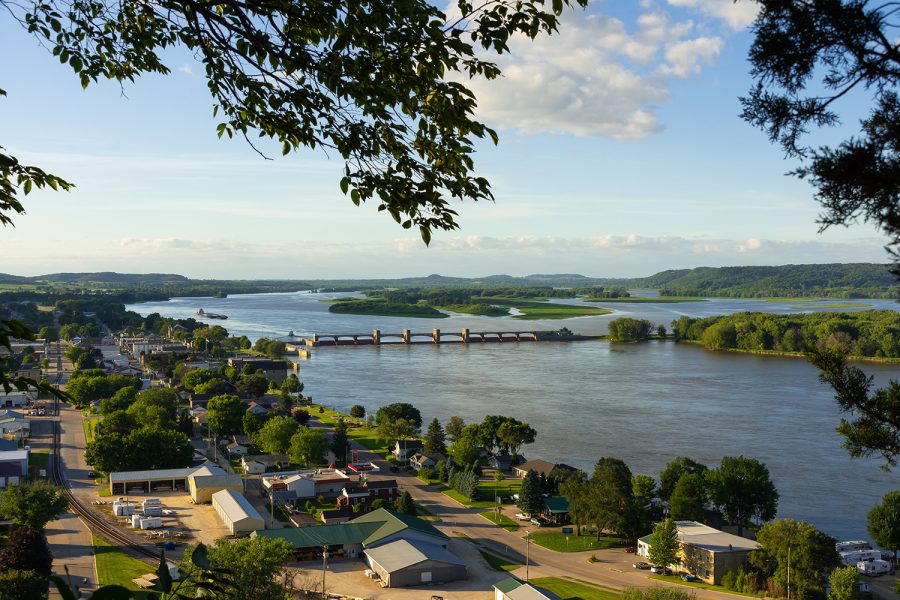Opinion | Don’t drain the mighty Mississippi
The water shortage in the US is an immediate danger.
August 24, 2022
California, Nevada, Utah, and Arizona are in an increasing drought and water shortage because water sources like Lake Mead are drying up.
Some lawmakers have suggested a water pipeline to transport excess water from the Mississippi River to Lake Mead.
While this seems like a good idea on paper, it would be disastrous in execution. This pipeline cost the federal government too much money, and it would take private land from Iowans because part of the pipeline would go through the state.
In 2021, Kevin Paffrath ran a gubernatorial campaign in California to recall Gov. Larry Elder, stating the current drought needs to be addressed by transporting water from the Mississippi River.
The main problem with the plan is that the amount of water would be too little. Currently, the thought is to transport water during floods from the Mississippi river. But that is seen as collecting low amounts of water, not enough to combat the current shortages.
This project would not be cheap or quick. It would cost over $100 billion to build and would take years to build.
Building anything, especially a pipe line, takes lots of time to get approval from each city or each individual to build on or near their land.
Because it would be too expensive, time and money should be focused on other ways to get water to Lake Mead. The federal government should fund clean water production like desalination.
Desalination is the process of removing salt from salt water to make it usable. This could easily be done, as the region is much closer to the Pacific Ocean, and the process is known to bring in the water needed.
But the desalination process needs to be upgraded as a viable long-term solution.
Desalination is harmful to the environment because it releases a salty concentrate that kills sea life. With proper storage and waste disposal, the environment can be unaffected while bringing in more water.
The other problem is that the desalination process takes up energy and requires additional energy producers like wind or solar farms.
To solve this, the federal government would need to supplement state funding to build more clean energy to supply the extra energy needed for the desalination plants.
The drought is over 20 years old and will only get worse as climate change worsens. This is not something that can wait another 20 years or even wait over the next year.
The Federal Emergency Management Agency sent aid when Iowa and the Midwest was hit by the derecho, so it is time for them to help out with the drought, not with a pipeline from the Mississippi River.
The pipeline would be too expensive for a process that would not provide enough water to help the situation. Desalination would help the region over the coming years, but needs funding from the federal government to be on a large enough scale.
Columns reflect the opinions of the authors and are not necessarily those of the Editorial Board, The Daily Iowan, or other organizations in which the author may be involved.















